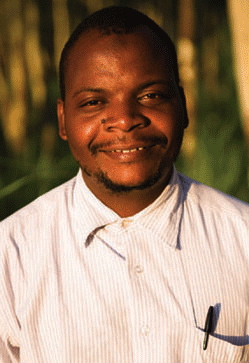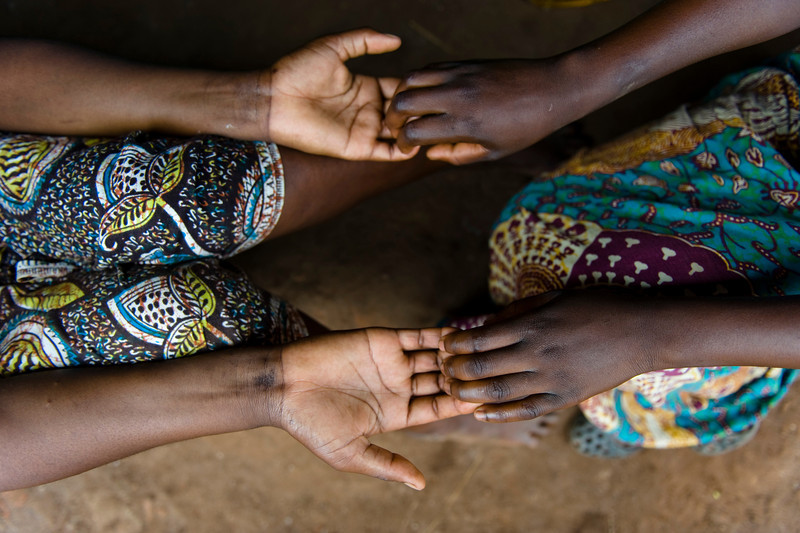
I always walk away from a conversation with Saeed Wame with a brand new understanding. Whether he is blowing my concept of “capacity” wide open, or offering a completely new role for volunteers, Saeed is the sort of community leader whose wisdom and humility always leaves you with much to be mulled over and much to be integrated into your work and life. (And he’s not a bad dancer!)
This conversation I had with Saeed in 2011 was no different. I am re-posting this interview to support Namwera AIDS Coordinating Committee during the current GlobalGiving Open Challenge. If you are able, please do invest in Saeed’s efforts and help him get 1,500 children back into school in southern Malawi.
The money you give may be for school expenses, but as you can see from this feature, Saeed and his team know that access to education is about so much more.
***
Saaed Wame founded the Namwera AIDS Coordinating Committee (NACC) in 1996 with a vision for his community and zero dollars. Today NACC utilizes a US$100,000 annual budget, operating in 400+ villages in four districts in southern Malawi. NACC has grown from strength to strength, adding programs and deepening its presence at the community level over the past 15 years. Although NACC began in response to the AIDS crisis in Namwera, its organization’s mission has expanded holistically over the years to include work in maternal health, early childhood development, and education care and support.
But it goes beyond that. NACC’s approach is, more importantly than any programmatic focus or service delivery, concentrated on enabling communities to be more resilient.
When I first learned of NACC in 2005, I was impressed by this embeddedness at the community level, evident immediately in the way they conduct field visits with donors and stakeholders. A long list of beneficiaries is retrieved at the office, the visitor is asked to select a name at random, and that is whom the entourage visits. No staging. No coaching. Nothing to hide and nothing to promote. Just here we are.
That spirit, confidence, and connectedness are evident throughout NACC’s programs. With a volunteer corps of over 5,000 [active!] people, it’s hard to call them volunteers. Rather, they are engaged and motivated citizens contributing to the betterment of their communities. As Saeed shares, “They don’t have money, but they have energy and ideas. They can offer their time.”
And this time is no small thing.
In an aid dependent country like Malawi, an organization with US$100,000 is still considered small. Despite NACC’s success, their work, for the most part, remains somewhat “under-the-radar” among the donor community in Malawi. I asked Saeed, however, if he could put a monetary value on the volunteer effort that NACC relies upon, how this would that compare to the international donations he receives. Here’s our conservative back-of-the-envelope calculations:
Let’s say…one of NACC’s volunteers works in their community on average one hour per day, five days per week. Based on average wages in Malawi, a volunteer’s hour’s work could be valued at 20 Malawi Kwacha. Let’s say they offer this much time just 45 weeks of the year. That’s an over US$13,500 annual contribution by the volunteer cadre, not to mention in-kind local donations.
That’s nothing to dismiss in a country where 90% of the population earns less than US$2 per day.
What these volunteers are able to accomplish, however, is where Saeed sees impact. For example, in education, NACC is not about just getting kids in school. Rather, they assist the community to assess and analyze the barriers to attendance, performance and completion and their root causes. Saeed shared with me a recent example where a village they support identified distance as a major obstacle to primary school access; seven kilometers was too far, especially for younger children. NACC facilitated the community’s meeting with invited local Ministry of Education officials, in which the community offered to build a junior primary school for lower grades, if the government could supply the teachers. And that is what happened.
Be it child labor and property grabbing cases, NACC uses the same problem-solving approach, especially where culture and laws are in conflict. Saeed told me the story of a 12-year-old girl they served recently. Hawa had passed her exams to get into secondary school but was forced into marriage by her family instead. When NACC’s volunteers found out about the situation, they intervened. The girl’s mother then appeared in NACC’s offices, seeking not only assistance, but redemption. “She cried that she wanted forgiveness. She said she didn’t know there were laws,” says Saeed. He told her that forgiveness would come when she took her child away from the new husband, which she did.
These are the intimate, personal and family issues at the community level that local organizations are best placed to address. Saeed explains, as staff of a local organization, “We experience these kinds of issues day-to-day ourselves. Therefore it is we who can help discuss with community members and officials with a way to address the problems together.”

Not only that, the story of this 12-year-old girl retrieved from her early marriage travels. Hawa is one of several girls NACC has assisted in this situation and she is now in secondary school and has become an active NACC volunteer who “encourages her friends to work hard at school and not rush for marriages.” It may only be one case, one “result” in terms of what NACC is able to accomplish, but it gets people talking. Says Saeed, “Other families now think twice before they marry off their young daughters. It may be only one story, but that is real impact.”
“Yes, [early marriage] is in our culture, but people learn from each other that it is against ourselves.”
And that is why Saeed shares that in terms of NACC’s impact, “The time to think of only numbers is over.”
“You can say we reached 10 children or 10,000 children, but the communities need to know the impact of their work. So what?—that’s the best question to ask ourselves, and to answer ourselves.”
***
You can hear Saeed Wame in his own words here and learn more about NACC’s work here and here. To contact Saeed, email: saeedwame (at) yahoo (dot) com.
***
Related Posts
Reaching Girls at the Grassroots – A Sound Investment (Part 1)

